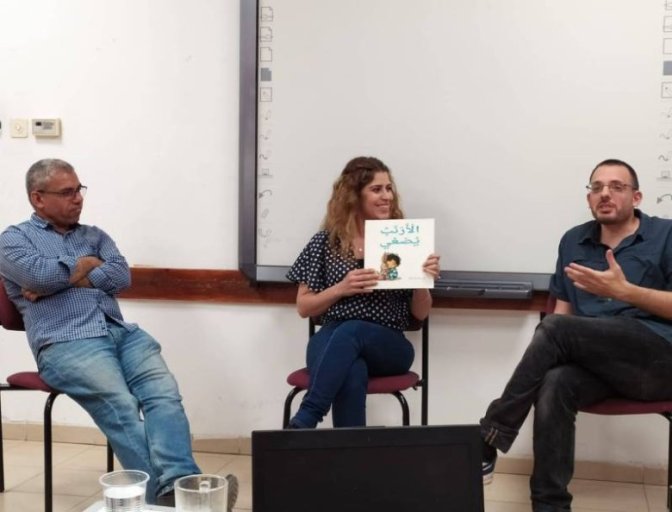Home > Oasis of Peace > Projects & Outreach > The School for Peace > School for Peace completes change agents course for leaders in shared (...)
School for Peace completes change agents course for leaders in shared cities
Saturday 29 June 2019

On June 28-29 we held the final meeting for the Arab - Jewish Shared Cities Leadership Course.
For the second year, the course included a panel for foundations. The panel was chaired by activists Hana Amori and Udi Arnon and was attended by representatives of the New Israel Fund (NIF) and the Rosa Luxemburg Foundation. Both funds are characterized by their flexibility in supporting shared society. The NIF recently launched a call for proposals by entrepreneurs, small organizations and non-profits. They made it clear that the call would be open to the course graduates and several of them said they would be submitting proposals for projects. Hana Amori introduced the Rosa Luxemburg Foundation. She emphasized that the fund favored projects with a political aspect and said that support could be provided also for non- organizational actors.
In addition, a meeting was held with graduates of previous courses. Ayala Shalev told about the Alternative Memorial Day event she has helped to organize for the second time this year and her experience as an activist in many projects. Naif Abu Suis, a Ramle City Council member, spoke about his activities on behalf of his constituency the question of collaboration with the incumbent mayor, the burning issue of illegal construction and other matters that were central to shared cities.
In the Arab uni-national summary, the issue of significance and effectiveness in encounters with Jews was highlighted and the importance of highlighting collective issues in those meetings. In the Jewish uni-national group, the participants said they saw that dealing with the conflict and with Jewish-Palestinian relations as a matter of crucial importance.
Initiatives developed in the course
The Zahara Project
Every week, a Facebook Page posts a new post about a Jewish or Arab woman in Jerusalem, who is influencing the reality of the city. Thanks to this page, it is possible to find inspiring women, projects, initiatives and various grassroots social actions organized by women who chose to see opportunities before them and to rewrite reality.
The page has been running for about two months and has published eight interviews with Arab and Jewish women in the field of education and activism, which currently has 400 likes.
Database Project
Rebecca works as Deputy Director of the Community Department at Hand in Hand. As part of her work, she often comes across the need to invite a bilingual performer or artist for the children in various communities where there are Hand in Hand schools. Her need for bilingual performances is not unique to her organization but is also one that is common to shared cities in general. Rebecca has begun to create a database of performances and artists providing bilingual performances for primary school children. The database will be open to the public.
Urban volunteering by Ophir and Dinah
The Follow program is based on the needs of 12th grade students of a Jaffa Jewish high school with a 40% enrollment . Today, the students’ post-graduation year is tough for both the Arab students and for those Jewish who do not, for various reasons, enlist in army service. Many of these are finding their way. They either lack satisfactory grades for higher education or are still unready for it. The program will empower 12th grade students by strengthening their connection to the school and to the community.. It will provide a framework of workshops that focus on identity and social work. At the end of the year, there will be an event presenting various options for volunteering. The project will be run in collaboration with the B’nai Brith community center of Jaffa and the Sadaka-Reut association. Ophir and Dina, who work in these two organizations, will lead the project.
Social Entrepreneurship Project
Gili works for Hackaveret, an organization promoting professional and financial social entrepreneurship. He is leading the organization’s first attempt to encourage social entrepreneurship in Arab society. This follows meagre representation by Arab entrepreneurs in Hackaveret’s activities till now. The initiative is strategic and long- term. The first step was to set up, in early August, a crowdsourcing-style event whose purpose was to generate brainstorming about ways to encourage social entrepreneurship in Arab society. A number of Arab professionals came together and sat with the organization to think about obstacles, needs and ideas how to promote the issue.